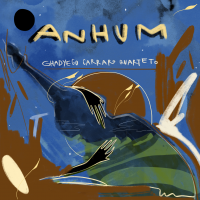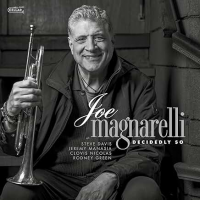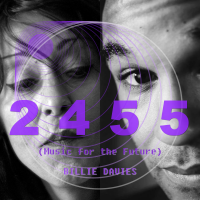Home » Jazz Articles » Album Review » Terence Blanchard: A Tale Of God's Will (A Requiem For Katrina)
Terence Blanchard: A Tale Of God's Will (A Requiem For Katrina)
That's not the case with trumpeter Terence Blanchard's A Tale Of God's Will (A Requiem For Katrina). The emotions run deep with this reflection on the tragic outcome of 2005's Hurricane Katrina on the city of New Orleans. But Blanchard's sextet, augmented by The Northwest Sinfonia, manages to create a seventy- minute suite that is so painfully honest, so painfully real, that it transcends the undeniable tragedy of its source to become a reference point for the power of music to, as Douglas suggests, uplift and raise. There's pain and hurt here, but there's also optimism that the survivors of Katrina can overcome challenge, rebuild their lives and move forward.
Jazz-meets-orchestra is often inherently risky, but Blanchard—whose career in jazz has been balanced by his work as a skilled film scorer/orchestrator—creates a blend that takes full advantage of the orchestra's sweeping dramaturgy and mixes it with the improvisational power of a jazz ensemble to creates music that avoids becoming saccharine or melodramatic.
Blanchard's group is essentially the same as on Flow (Blue Note, 2005), with tablaist Zach Harmon replacing guitarist/vocalist Lionel Loueke. While the majority of the writing is Blanchard's, he encourages his group of younger players to contribute as well. Pianist Aaron Parks' "Ashé" is a lyrical expression of determination, with Blanchard delivering one of his finest solos of the set, while saxophonist Brice Winston's "In Time of Need" is more melancholy, but with a hint of tumultuous undercurrent carried by Harmon. Drummer Kendrick Scott's "Mantra Intro" features bassist Derrick Hodge, while the more sprawling and powerful "Mantra" features a fiery solo from Blanchard that's fuelled by the drummer's relentless energy before settling into Parks' more restrained but equally compelling work. Hodge's uplifting "Over There" possesses a strong melody and solo section, beautifully supported by Blanchard's string arrangement.
Blanchard's writing is, as always, a cosmopolitan blend that includes references to African American roots ("Ghost of Congo Square"), elegant simplicity that turns more forceful ("Levees" and Wading Through"), the New Orleans tradition (Blanchard/Hodge's duet, "Ghost of Betsy") and classicism filtered through a jazz lens ("The Water"). Throughout, Blanchard's orchestration seamlessly integrates with the sextet; a rare feat.
If music has the power to move in nuanced ways that avoid overstatement, then A Tale of God's Will is an artistic triumph that recalls the tragedies that are a part of the human condition but, equally, the power of the human spirit to rise above them.
Tags
PREVIOUS / NEXT
Terence Blanchard Concerts
Support All About Jazz
 All About Jazz has been a pillar of jazz since 1995, championing it as an art form and, more importantly, supporting the musicians who make it. Our enduring commitment has made "AAJ" one of the most culturally important websites of its kind, read by hundreds of thousands of fans, musicians and industry figures every month.
All About Jazz has been a pillar of jazz since 1995, championing it as an art form and, more importantly, supporting the musicians who make it. Our enduring commitment has made "AAJ" one of the most culturally important websites of its kind, read by hundreds of thousands of fans, musicians and industry figures every month.























